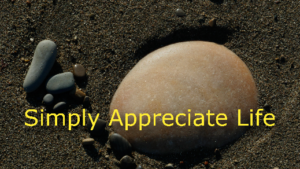Elise was feeling a bit down and a little demotivated with her job. She had been given new responsibilities by her boss Roger, as he needed to delegate work to free up time to implement a new payroll system.
Elise was not feeling appreciated for the new tasks she was doing. She was proud of her work and the new things she was contributing but it seemed to be ignored by Roger and even her team members. She felt taken for granted and was starting to wonder if she should keep making an effort to do her best.
Expressing appreciation for the work people do on the job is something that is easy to do but not done often. In a recent article Managing Employees for Change & Improved Productivity I wrote about Rogers dilemma and what a leader needs to do to avoid having employees become resistant to change and growth. The last item on that list was “express appreciation for the effort and accomplishments of employees to learn new skills”.
In my article Building Positive Self-Image of Employees for Improved Performance I touched upon appreciation and I want to elaborate a bit more. Appreciation is so important not just in the context of this article about motivating employees but in all aspects of life. If we develop a mindset of appreciation and practice appreciation in our lives every day we will be happier, more positive, open and collaborative. These are just some of the benefits and I can easily create a list of many more.
There are many reasons we could come up with for not being appreciative of the people and circumstances in our life. But that is a choice we make. Yes, we can choose what we think about and where we put our focus. If we don’t like what’s happening in our life the first thing we need to look at is ourselves. Why am I feeling this way? What thoughts are causing these feelings? On what am I putting more focus? What is really great in my life that I can appreciate right now?
 The very first place to begin is simply to appreciate being alive. This may sound overly simplistic but it’s really about slowing down and seeing the possibilities that are before us simply because we are alive and we can make choices of what we think and how we feel.
The very first place to begin is simply to appreciate being alive. This may sound overly simplistic but it’s really about slowing down and seeing the possibilities that are before us simply because we are alive and we can make choices of what we think and how we feel.
In his book 59 Seconds, Change Your Life in Under a Minute, author and psychologist Richard Wiseman gives an exercise based on a study about happiness and appreciation. The study clearly shows that people who wrote down what they appreciated in their lives ended up feeling happier.
Wiseman suggests taking a few minutes each morning for five days to write down a few things you feel appreciative about. The resulting feeling of happiness from this simple exercise can last months. When the effect wears off just repeat the exercise. Print out this page and use it to keep an appreciation journal over a five-day period. The exercise below is based on Wisemans’ chapter on happiness.
Monday: Thanksgiving
List three things over the past week or days that you feel grateful for. This could be about a relationship, something you have, a hobby or your work.
Tuesday: Terrific Times
Think back of a terrific time in your life when you felt great or complete. Write about this event or experience and describe in detail how you felt.
Wednesday: Future Fantastic
Think about how you want your life to be in the future. Imagine having achieved your goals and ambitions. Describe the person you would like to become. Write that down how it feels as if it has become reality.
Thursday: Dear…
Think about a very important person in your life. Imagine you have only one opportunity to tell them how you feel about them. Write a letter expressing this and what special impact they have had in your life.
Friday: Reviewing the Situation
Think back over the last seven days and write down three things that went well. These could be trivial or important. Jot down why you think each event turned out so well.
When we shift our thinking to become more appreciative of our own life, we then can become more appreciative of others. As a leader coach, take time each month to meet individually with each team member for a coaching session. This will provide a prime opportunity to step away from the daily work schedule and urgencies and express appreciation for the person being on the job and making the efforts they do.
Stephen Goldberg
